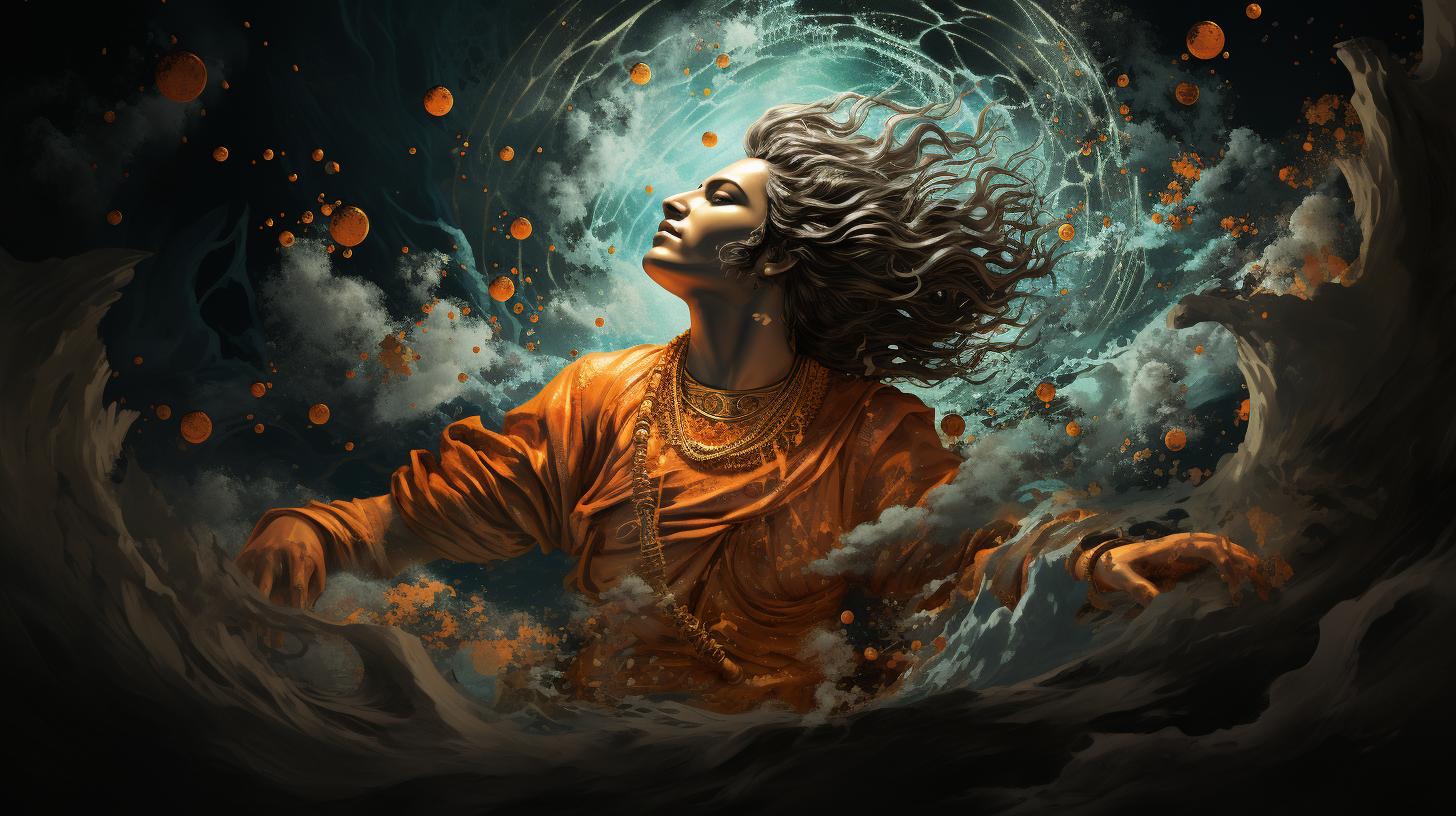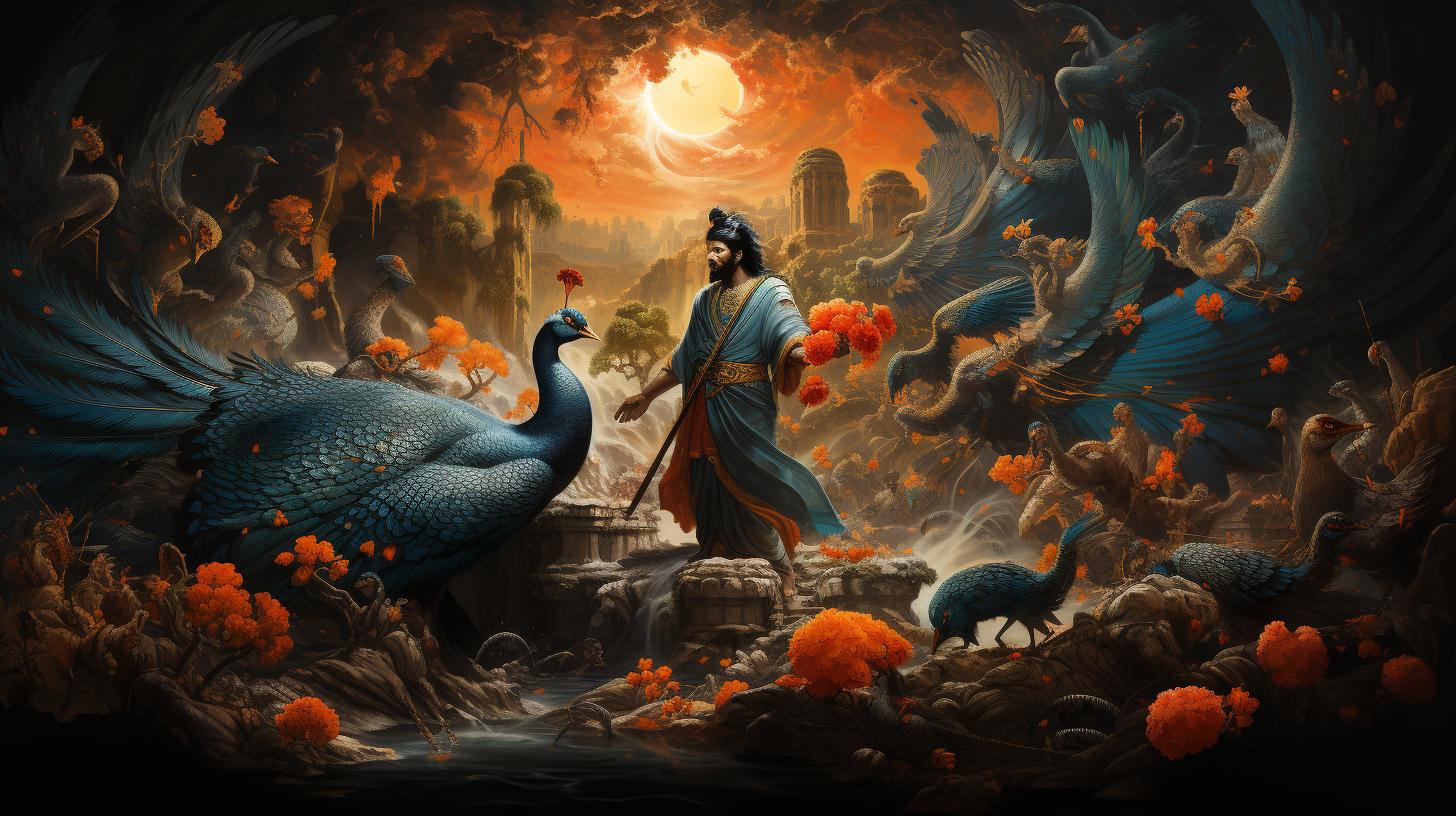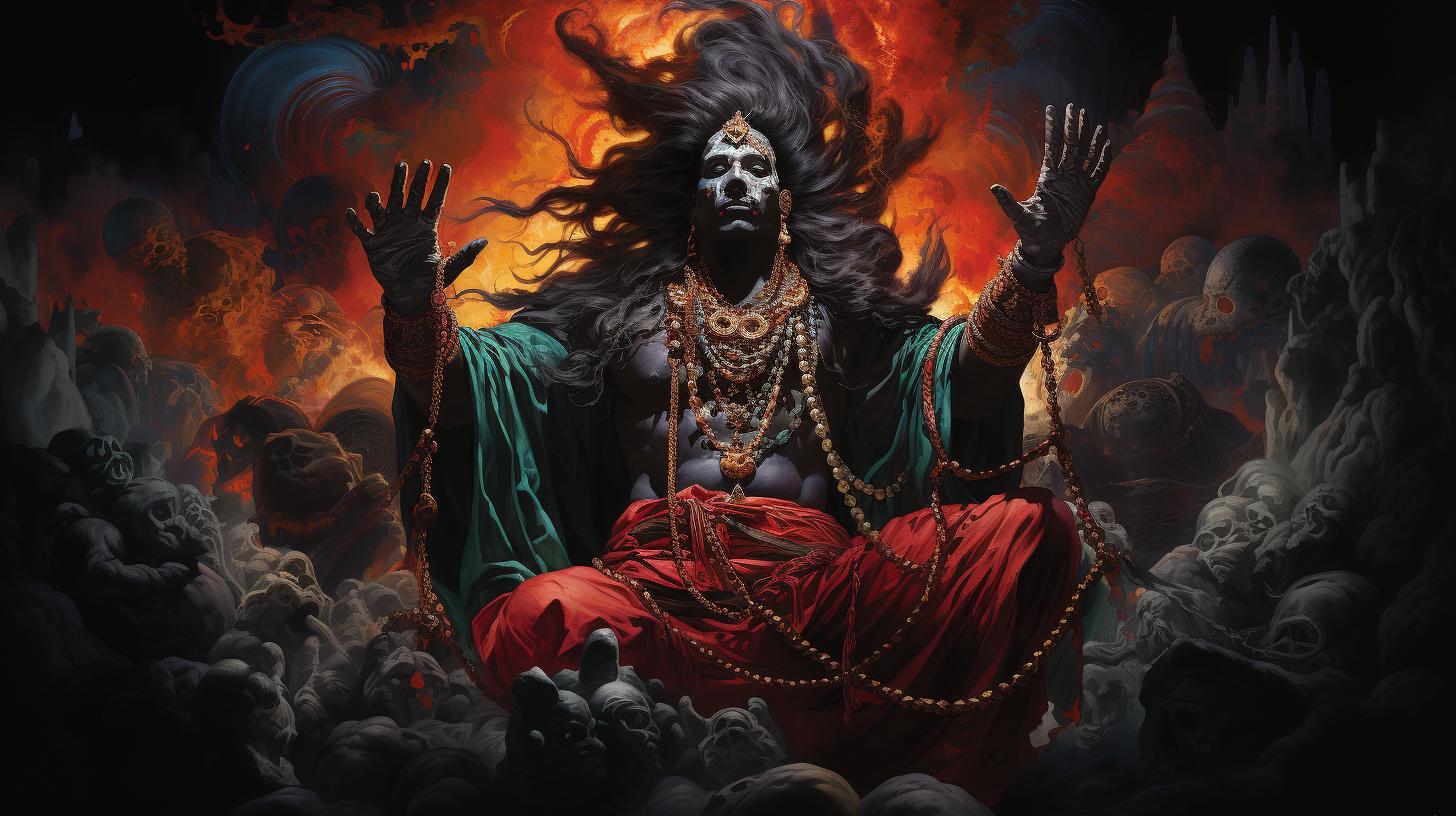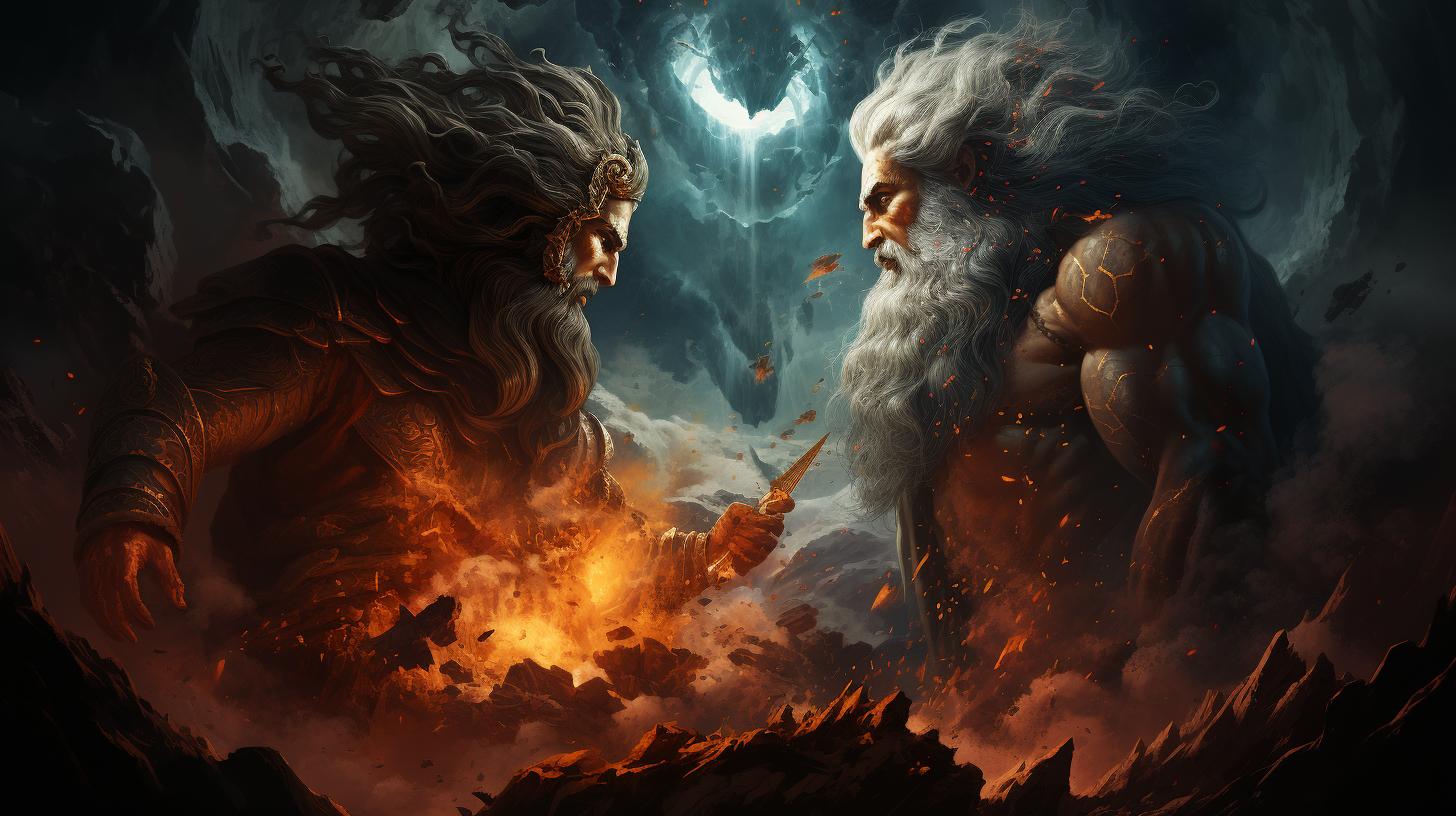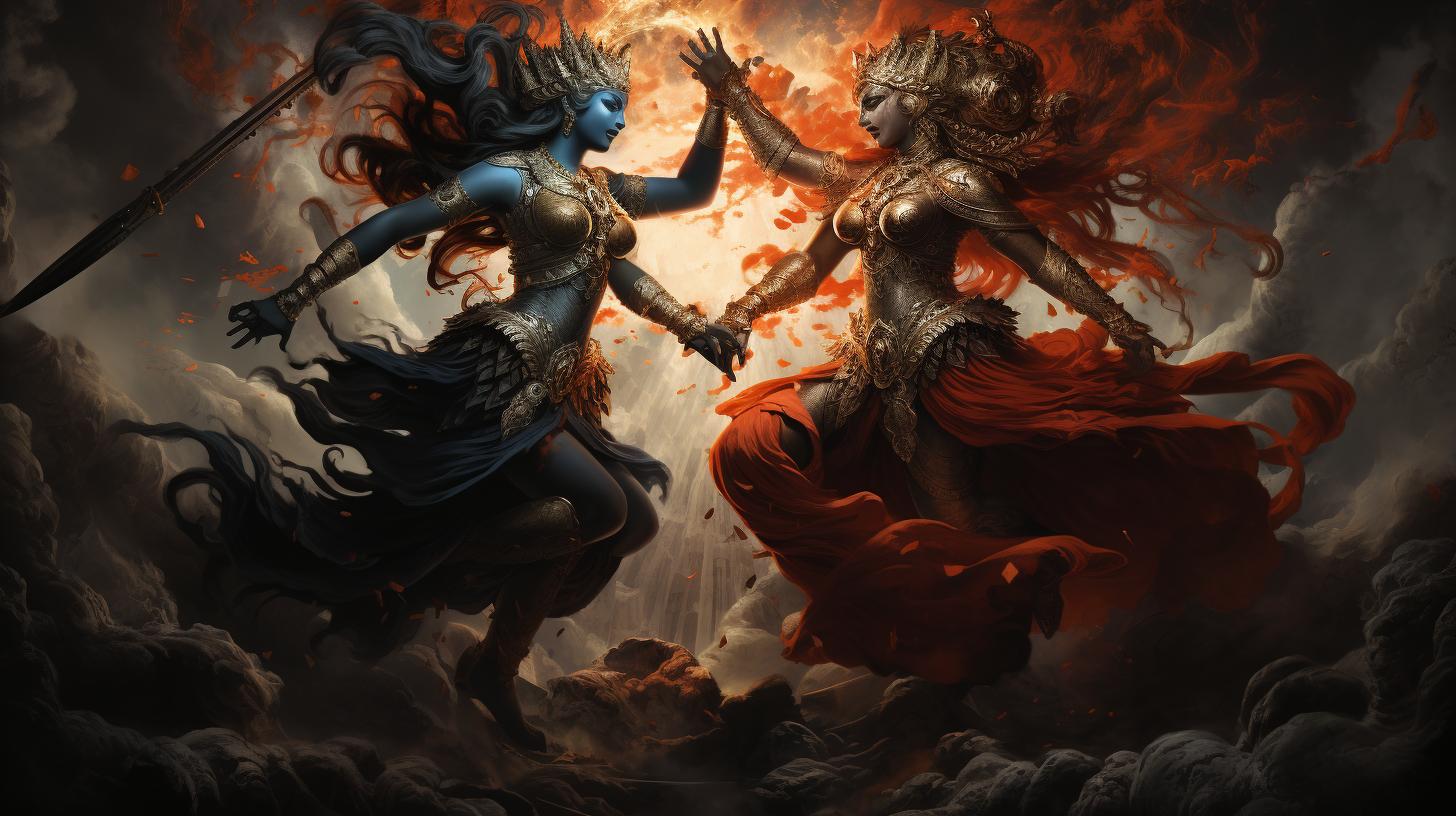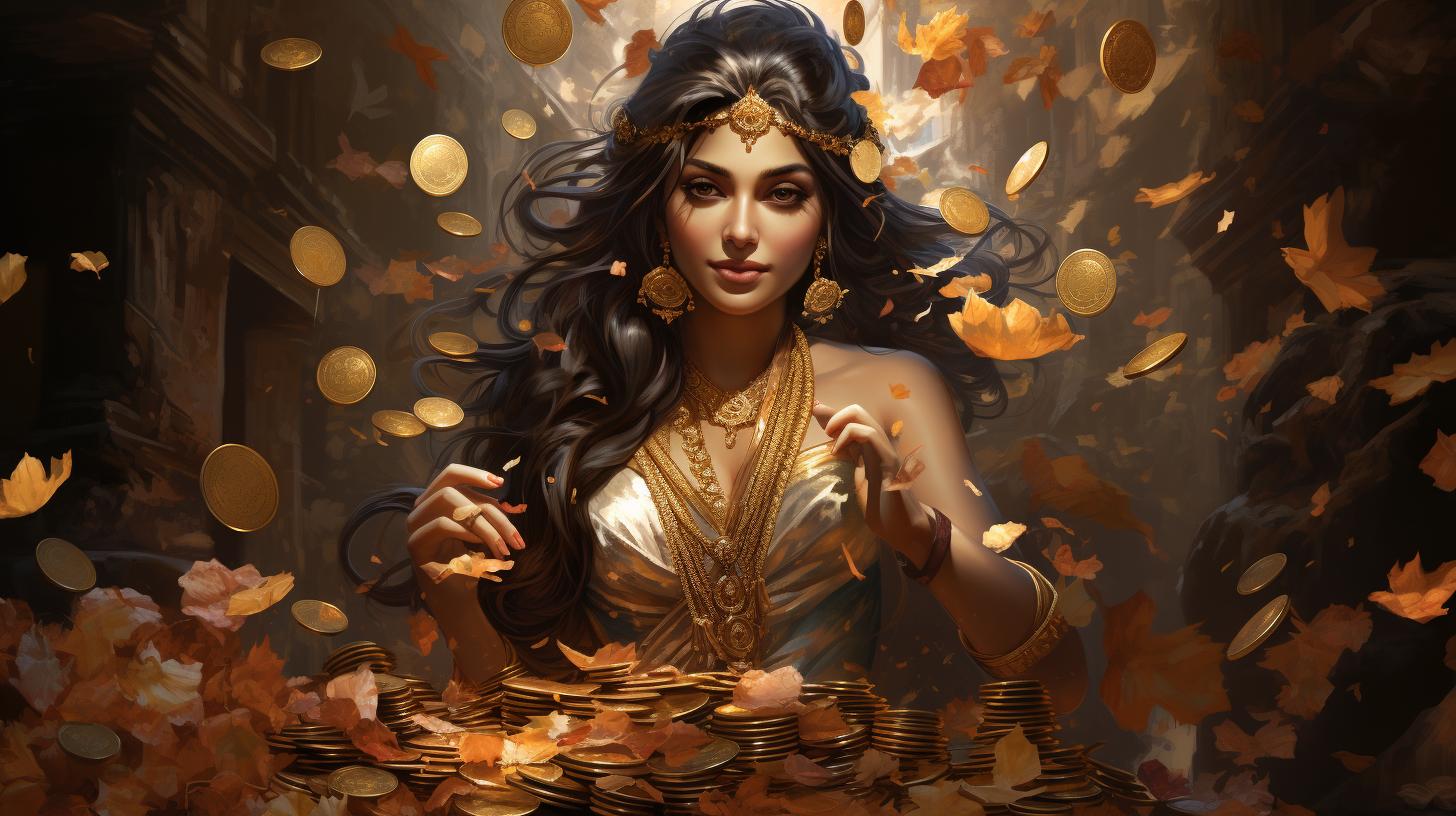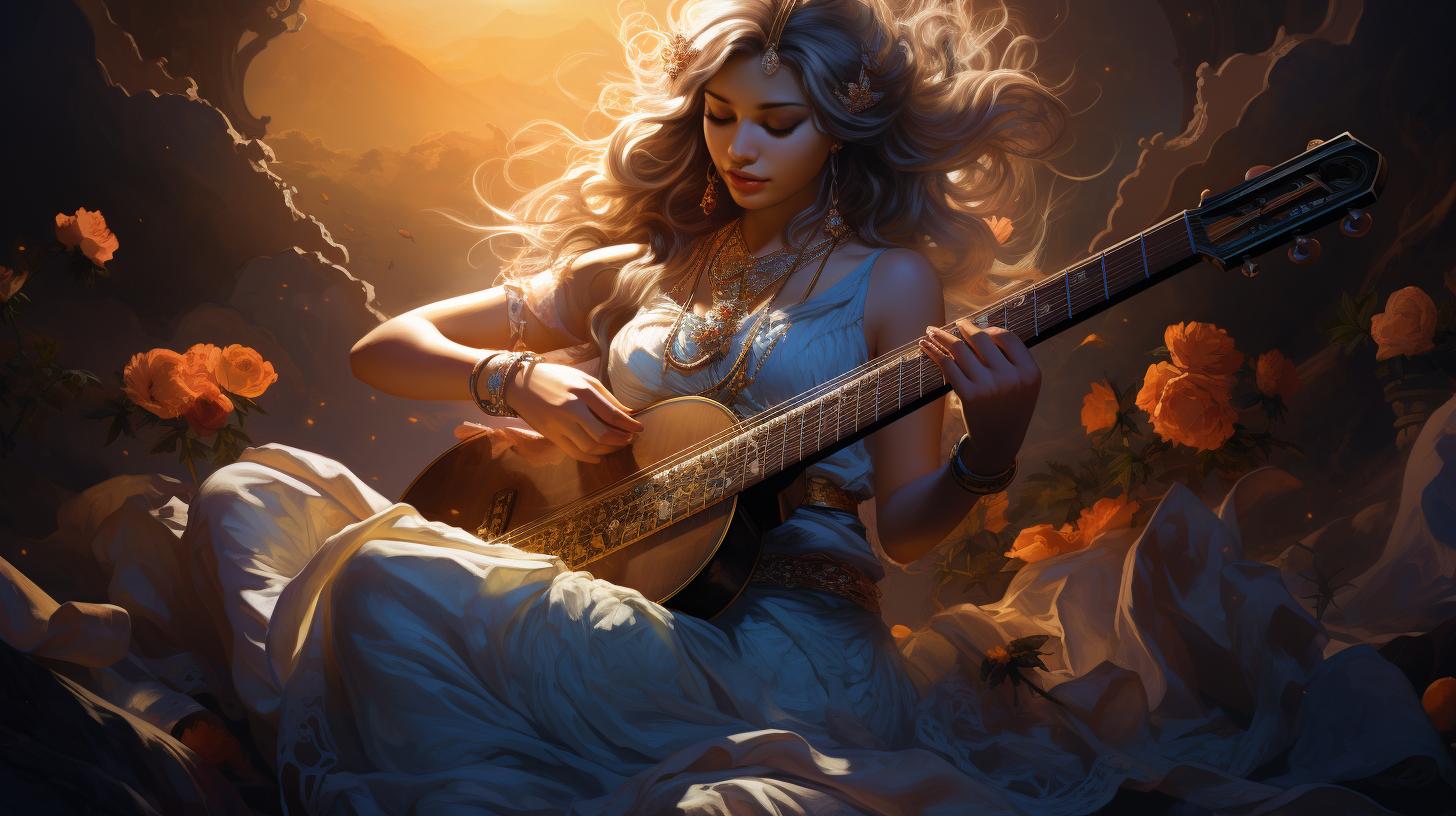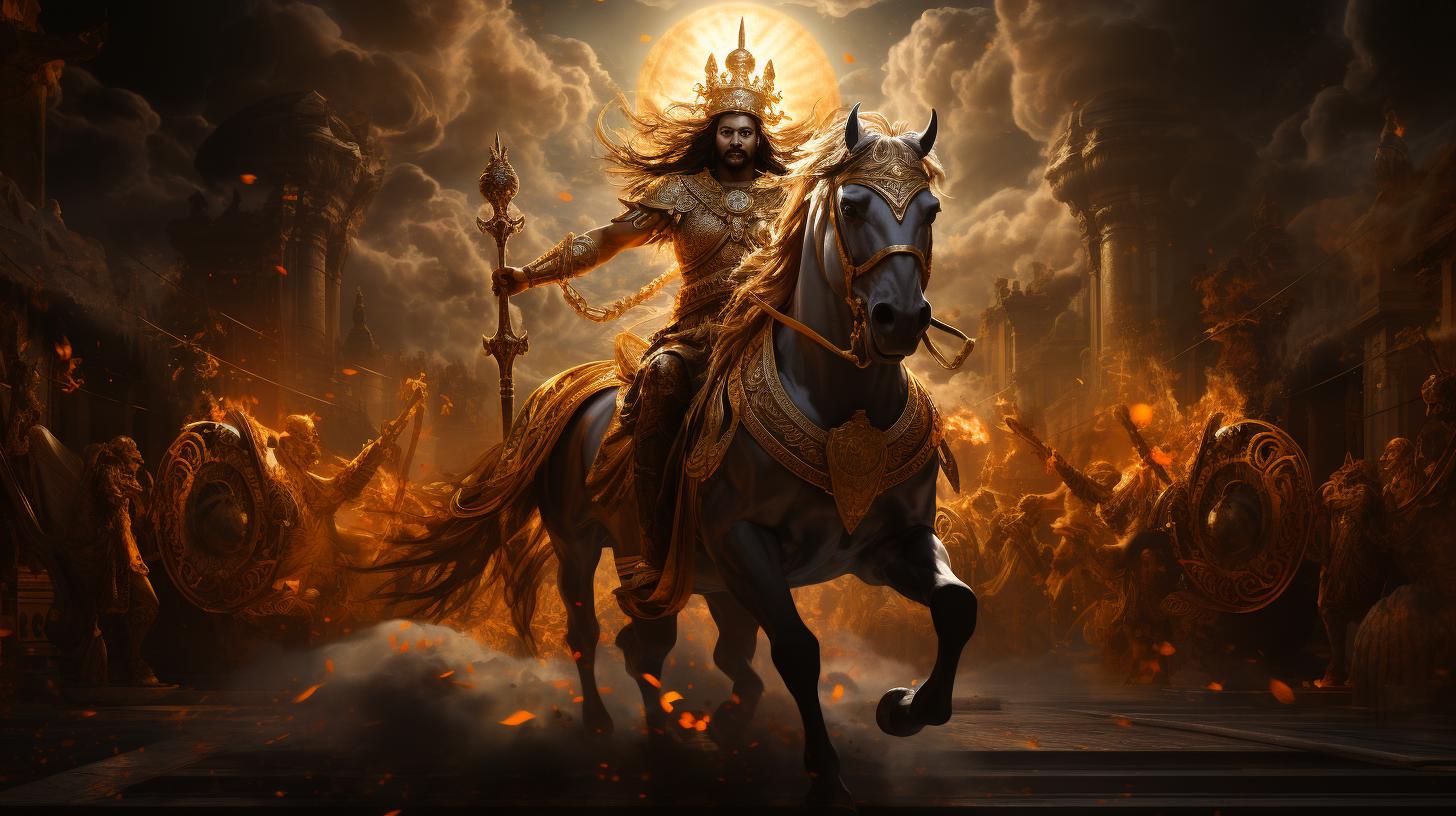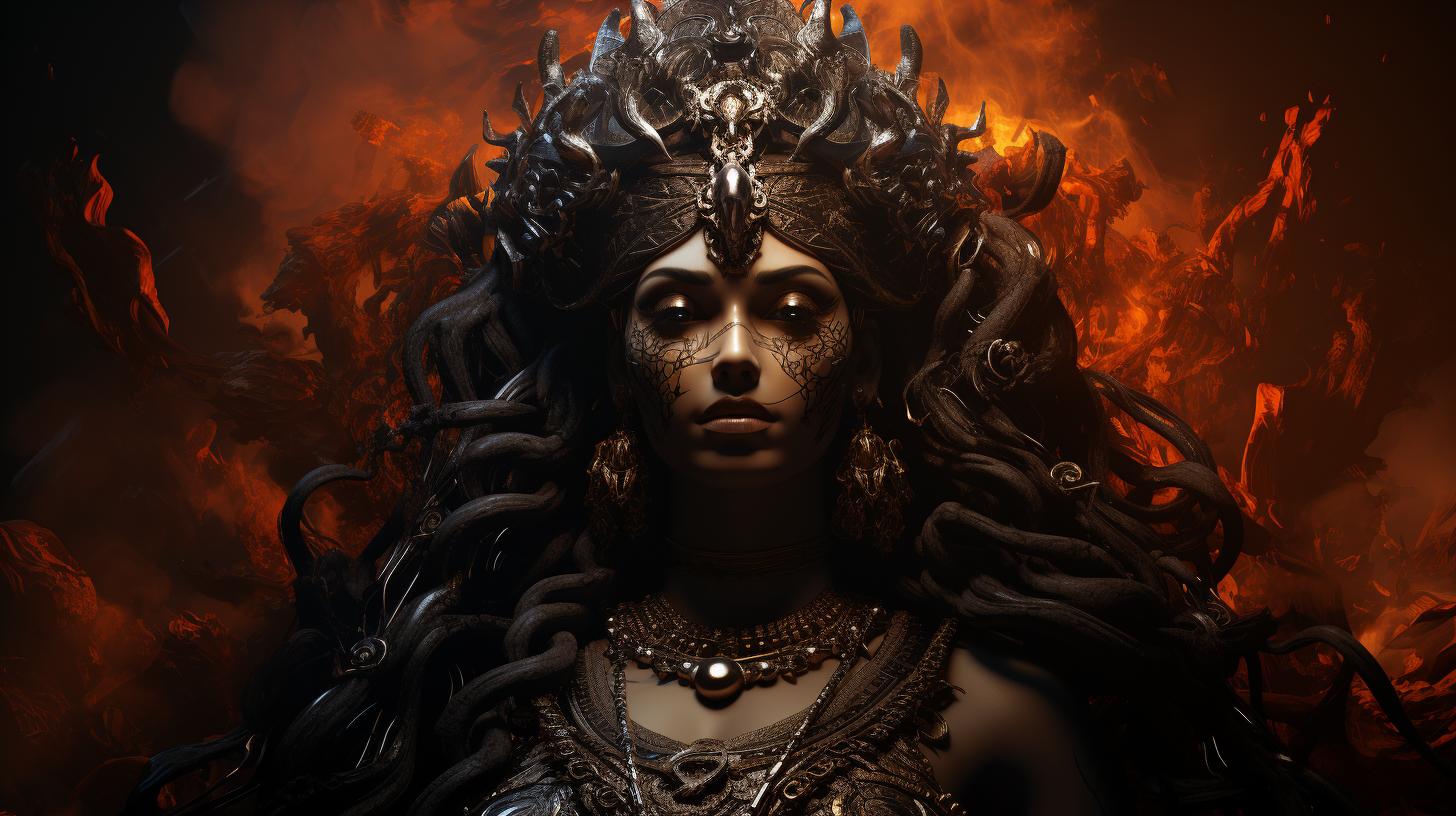Vayu: The Hindu God of Wind Unveiled – Insights and Legends
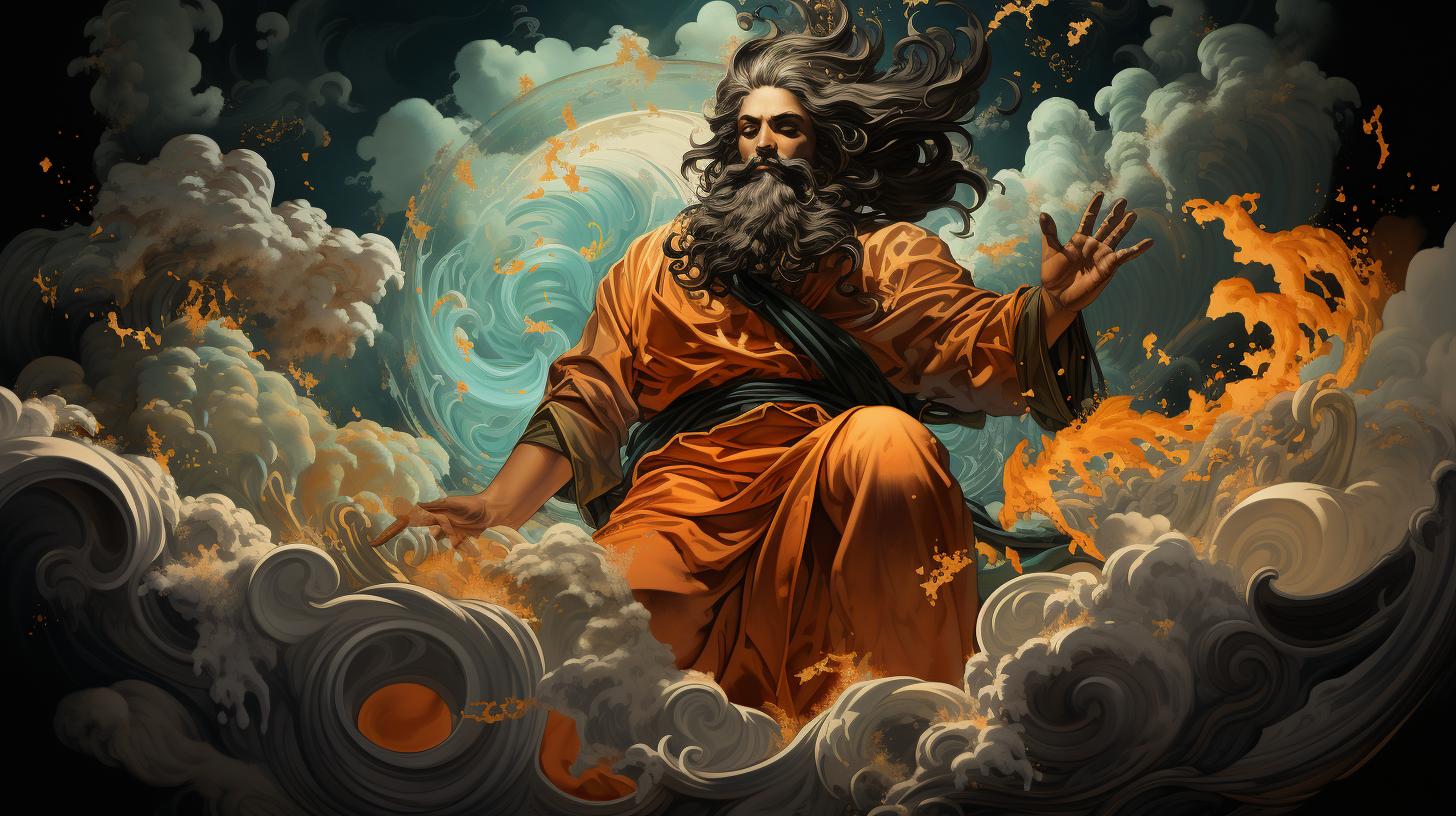
Vayu, the Hindu god of wind, holds a significant position in Indian mythology. He is known as the father of Bhima, the strongest Pandava, and the spiritual father of Hanuman, the mighty monkey god.
Legends speak of Vayu’s extraordinary feats, like creating Lanka from Mount Meru and his many love affairs. This deity is revered across various religions, including Hinduism, Buddhism, Jainism, and Zoroastrianism. Temples and sculptures dedicated to Vayu Deva can be found in Nepal, India, and the United States.
Discover more about Vayu’s fascinating myths, worship, and significance.
The Mythical Origins of Vayu in Hindu Mythology
Vayu, an esteemed deity in Hindu mythology, has captivating mythical origins that are deeply woven into the fabric of ancient Indian lore.
Let’s explore the fascinating relationship Vayu shares with two prominent figures: Bhima, the strongest Pandava, and Hanuman, the mighty monkey god.
Vayu’s Relationship with Bhima: The Strongest Pandava
Within the epic Mahabharata, Vayu emerges as the proud father of Bhima, one of the famed Pandava brothers. Bhima’s mother, Kunti, fervently prayed to Vayu for a son, and her prayers were answered.
Bhima’s birth granted him unparalleled strength, shaping the destiny of the Pandavas in their battle against the Kauravas.
Vayu’s Spiritual Paternity of Hanuman: The Mighty Monkey God
Vayu’s paternal role extends beyond Bhima, for he is also revered as the spiritual father of Hanuman, a deity greatly revered for his unwavering devotion and immense power. Hanuman, as a child, once attempted to swallow the sun, which led to divine intervention and an enraged Vayu temporarily withholding the flow of air and wind.
Ultimately, gods intervened and convinced Vayu to restore the crucial life-sustaining elements, blessing Hanuman with extraordinary strength and wisdom that surpassed all others in the universe.
These intricate relationships showcase Vayu’s role as a divine parent figure, guiding and shaping the destinies of both the mighty Bhima and the revered Hanuman, in their respective journeys.
Vayu’s Divine Feats and Legends
Let’s delve into the captivating tales of Vayu, the Hindu god of wind, and explore his divine feats and legendary stories that have been passed down through generations. These tales showcase the immense power and significance of Vayu in Hindu mythology.
Vayu’s Role in Creating Lanka: From Mount Meru to the Sea
One of the remarkable legends associated with Vayu tells the story of how he broke the peak of Mount Meru and hurled it into the sea, giving rise to the magnificent island of Lanka.
This feat not only illustrates Vayu’s immense strength but also his ability to shape the world around him.
Vayu’s Numerous Love Affairs and Romantic Tales
Throughout the ages, Vayu has been known for his many love affairs, as the winds carry his affection to different corners of the world. These romantic tales often intertwine with other mythological figures, such as celestial nymphs and goddesses.
Vayu’s amorous exploits highlight his passionate nature and his influence on the realm of relationships and desire.
In one such tale, Vayu fell in love with a celestial nymph called Tilottama.
Their love story, filled with devotion and desire, showcases Vayu’s ability to capture the hearts of celestial beings and highlights the depth of his emotions.
Another notable romantic tale revolves around Vayu’s enchanting relationship with the goddess Saraswati. Their divine connection is said to inspire creativity and intellectual pursuits, emphasizing the profound influence Vayu has on the realm of knowledge and inspiration.
These love affairs and romantic encounters portray Vayu as a multi-dimensional god, embodying both strength and tenderness, and leaving a lasting impact on the world.
Stay tuned to explore more intriguing aspects of Vayu, his significance in Hinduism, and his worshippers across different religions.
The Significance of Vayu in Hinduism and Other Religions
Vayu’s Worship and Devotion Across Hinduism, Buddhism, Jainism, and Zoroastrianism
Vayu, the Hindu god of wind, holds immense significance in Hinduism and is also revered in other religions such as Buddhism, Jainism, and Zoroastrianism. Followers from diverse religious backgrounds show their devotion and worship towards Vayu, recognizing his power and influence over the winds and the element of air.
In Hinduism, Vayu is considered a vital deity, as he symbolizes the life-giving force necessary for sustaining all living beings. He represents the breath of life and is associated with the essential air that we breathe.
Devotees believe that without Vayu’s blessings, life cannot exist. His worship involves offerings, prayers, and rituals, often performed in temples dedicated to him.
Buddhism, Jainism, and Zoroastrianism also recognize Vayu’s significance, incorporating his role as the god of wind in their respective beliefs.
In Buddhism, Vayu is respected as one of the guardians of the Directions, representing the power of air. In Jainism, he is revered as one of the Tirthankaras, the beings of spiritual enlightenment.
Zoroastrians consider Vayu as one of the Yazatas, divine entities associated with the natural elements.
Temples and Sculptures Dedicated to Vayu Deva in Nepal, India, and the United States
Vayu’s presence and influence can be witnessed through the various temples and sculptures dedicated to him. These sacred sites exist not only in his native lands of Nepal and India but also extend to other parts of the world, including the United States.
In Nepal, the country with a rich Hindu tradition, temples like the Vayu Deva Temple in Kathmandu attract devotees who come to pay homage to the god of wind. These temples serve as spiritual sanctuaries where followers gather to offer prayers and perform rituals in veneration of Vayu.
India, being the birthplace of Hinduism, houses numerous temples dedicated to Vayu. These architectural marvels, such as the Vayu Temple in Hampi, Karnataka, and the Vayu Linga Temple in Chhaprola, Uttar Pradesh, provide spaces for devotees to express their faith and seek blessings from the mighty deity.
In the United States, where Hinduism has a growing presence, temples like the Vayu Devata Temple in California and the Vayu Mandir in Michigan serve as focal points for worship and community gatherings.
These sacred spaces provide a sense of connection to Vayu and the rich cultural heritage associated with his worship.
Through these temples and sculptures honoring Vayu Deva, followers from different regions and backgrounds come together to express their devotion and celebrate the significance of Vayu’s presence in their lives and faith.
FAQ: Common Questions About Vayu
Who is Vayu in Hindu mythology?
In Hindu mythology, Vayu is the god of wind. He holds a significant role as the father of Bhima, one of the mighty Pandavas, and is considered the spiritual father of Hanuman, the powerful monkey god.
Vayu is depicted as a divine entity, representing the force of air and the breath of life.
What is the relationship between Vayu and Bhima?
Vayu is known as the father of Bhima, one of the Pandava brothers. According to the mythology, Bhima’s mother, Kunti, prayed to Vayu, who granted her the boon of a son.
Bhima grew up to be the strongest among the Pandavas and played a crucial role in their victory over the Kauravas.
How is Vayu connected to Hanuman?
Vayu is regarded as the spiritual father of Hanuman. In a famous legend, when Hanuman was a child, he attempted to devour the sun, attracting the anger of the gods.
Vayu intervened to save Hanuman and, in his fury, stopped the flow of air and wind in the universe. After being convinced by the gods, Vayu restored the airflow, blessing Hanuman with extraordinary strength and wisdom.
What are some of Vayu’s notable feats and legends?
Vayu is associated with various remarkable feats and legends. One striking tale recounts how Vayu shattered the peak of Mount Meru and threw it into the sea, giving rise to the creation of the island of Lanka.
Additionally, Vayu is known for his numerous love affairs throughout the ages, adding to his mystique and allure.
Why is Vayu worshipped by different religions?
Vayu is revered not only in Hinduism but also in Buddhism, Jainism, and Zoroastrianism. His role as the god of wind and life-giving breath transcends religious boundaries, attracting followers from diverse backgrounds.
The worship of Vayu symbolizes the acknowledgment of the vital force that sustains all living beings.
Where can I find temples and sculptures dedicated to Vayu?
Temples and sculptures dedicated to Vayu Deva can be found in various locations, including Nepal, India, and the United States. These sacred sites serve as places of worship and devotion for followers of Vayu.
They showcase the significance and reverence accorded to this powerful deity across different cultures and regions.
.











